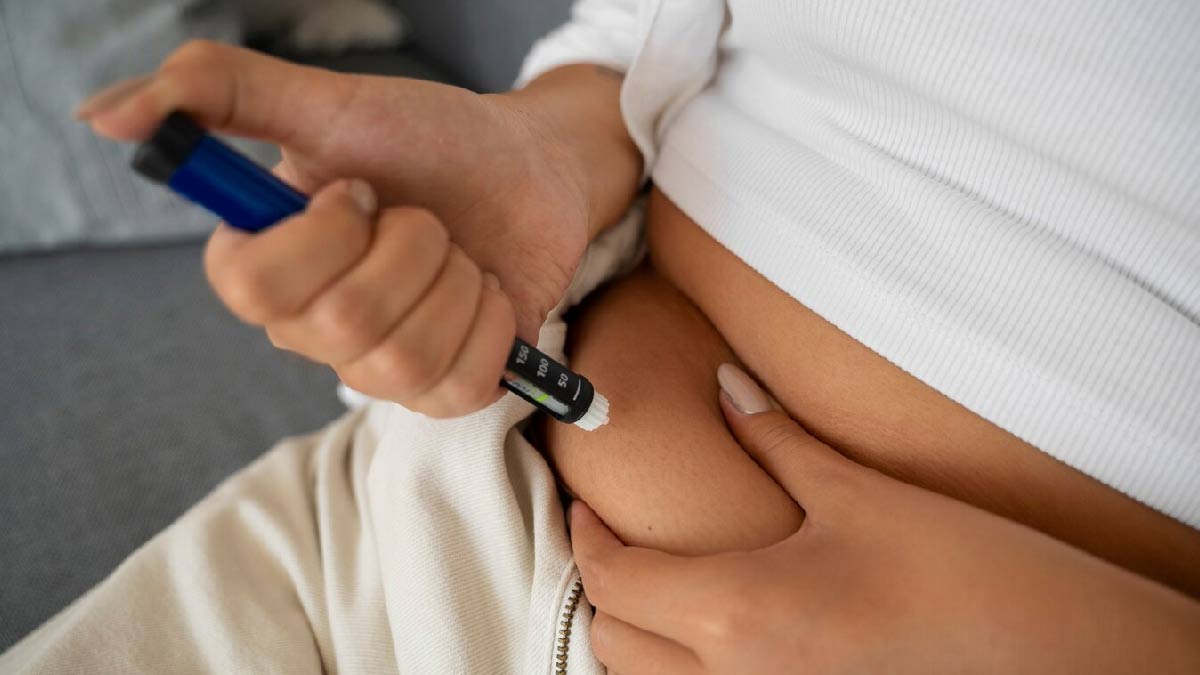
Gestational diabetes is diagnosed in pregnant women who don't already have the condition. According to the US Centers for Disease Control and Prevention (CDC), it usually develops around the 24th week of pregnancy and may not cause any symptoms, which is why regular testing during this time is essential.
Table of Content:-
While being overweight, having a family history of diabetes, or being older than 25 increases a woman's risk of gestational diabetes, even fit, healthy women remain at risk. Let’s understand why and how it can be managed effectively.
Also Read: What Is Gestational Diabetes? Know Causes, Symptoms, Prevention and Treatment
Why Gestational Diabetes Occurs

Dr Abhinaya Alluri, Consultant Gynecologist, CARE Hospitals, Hitech City, Hyderabad, says gestational diabetes occurs when the body cannot produce enough insulin to meet the increased needs of pregnancy, leading to high blood sugar levels.
Insulin is a hormone made by your pancreas that allows the body to let blood sugar into the cells for use as energy.
The CDC explains, "During pregnancy, your body makes more hormones and goes through other changes, such as weight gain. These changes cause your body's cells to use insulin less well, a condition called insulin resistance. Insulin resistance increases your body's need for insulin."
While all women have some insulin resistance during late pregnancy, some women have it even before they get pregnant, making them even more at risk for gestational diabetes.
Symptoms Of Gestational Diabetes

Here are some common symptoms of gestational diabetes:
- Feeling excessively thirsty
- Needing to urinate more frequently than normal
- Fatigue
- Dry mouth
- Blurred vision
- Feeling nauseous
- Experiencing frequent infections, such as urinary tract infections or yeast infections
- Sugar in urine was detected through a urine test during prenatal visits.
Preventive Measures
There are several ways to help prevent gestational diabetes. These include:
- Eating a balanced diet rich in fruits, vegetables, whole grains, and lean proteins can help regulate blood sugar levels.
- Engaging in regular physical activity can improve insulin sensitivity and help control blood sugar levels. Aim for at least 30 minutes of moderate exercise most days of the week, with your doctor's approval.
- If you're overweight or obese before pregnancy, losing weight before conception can reduce the risk of gestational diabetes.
- Attend all prenatal appointments so your healthcare provider can monitor your health and screen for any signs of gestational diabetes.
Also Read: From Dry Mouth To Fatigue, Here Are Some Warning Signs Of Gestational Diabetes
On Managing Gestational Diabetes

If you have developed gestational diabetes, managing it effectively is of utmost importance. Here are the steps you can take to alleviate symptoms and manage the condition:
- Monitor and check your blood sugar levels regularly at home to ensure they stay within a healthy range.
- Follow a well-balanced diet prescribed by a healthcare provider or dietitian.
- Continue to exercise safely during pregnancy.
- In some cases, insulin injections or other medications may be necessary to control blood sugar levels.
- It may be a relief to know that gestational diabetes typically resolves on its own after childbirth.
However, women who have had gestational diabetes are at an increased risk of developing type 2 diabetes later in life, warns Dr Alluri.
She says, “It's essential to continue healthy lifestyle habits postpartum, including regular exercise, healthy eating, and weight management, to reduce this risk. Additionally, women who have had gestational diabetes should undergo regular screening for diabetes in the years following childbirth.”
Also watch this video
How we keep this article up to date:
We work with experts and keep a close eye on the latest in health and wellness. Whenever there is a new research or helpful information, we update our articles with accurate and useful advice.
Current Version